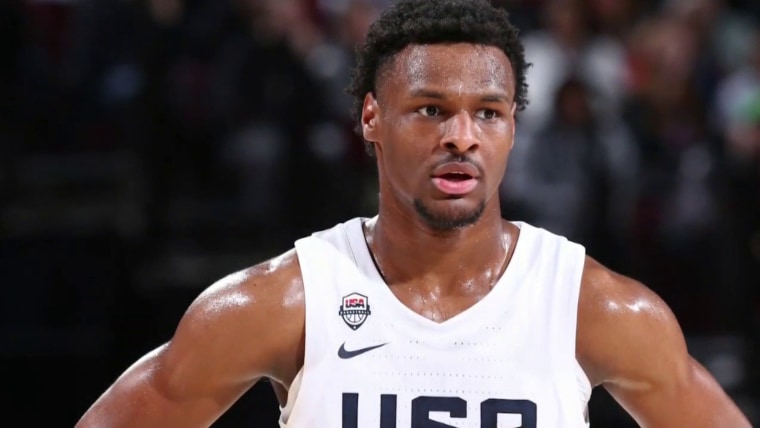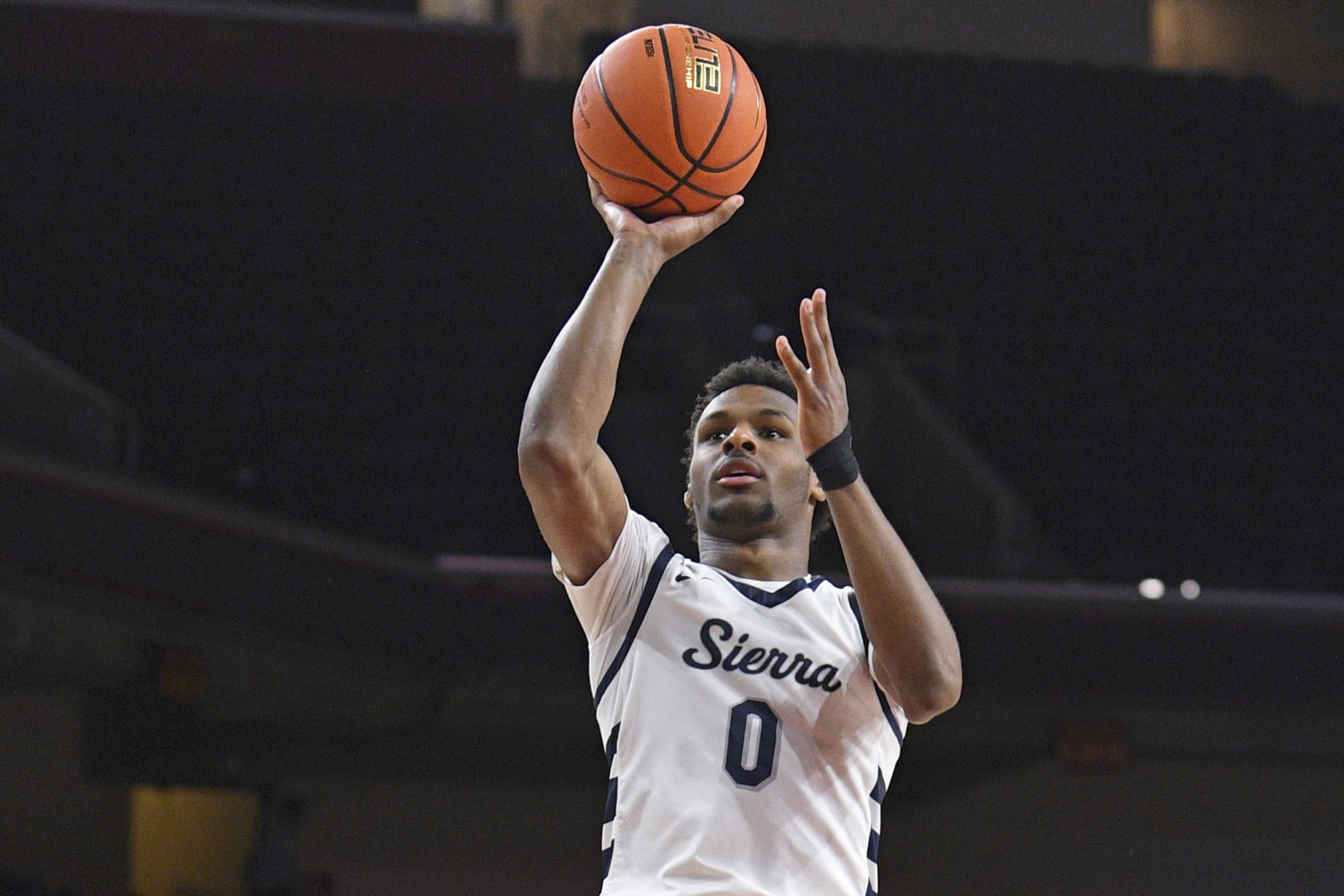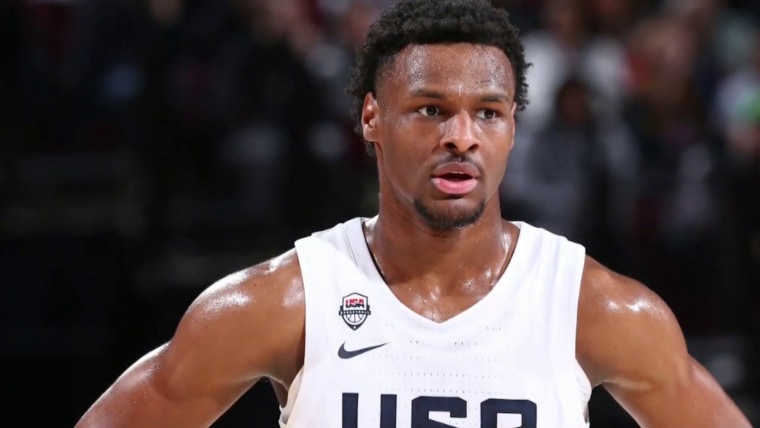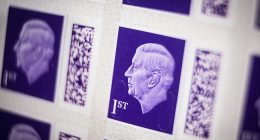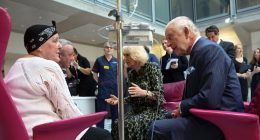Cardiac arrest is often sudden and shocking. It can happen without warning, even in young, healthy individuals.
LeBron James’ 18-year-old son, Bronny, is recovering after he collapsed Monday during a workout in Los Angeles and was rushed to the hospital.
“Yesterday while practicing Bronny James suffered a cardiac arrest. Medical staff was able to treat Bronny and take him to the hospital,” according to a family statement. He is now in stable condition and no longer in the ICU, according to the family.
Here’s what to know about cardiac arrest.
What is cardiac arrest?
Cardiac arrest happens when the heart stops beating and stops pumping blood to the rest of the body. In those moments, the brain and other vital organs don’t receive oxygen rich blood which they need to survive.
Cardiac arrest is different from a heart attack, which occurs when blood flow to the heart’s muscle becomes limited or blocked, causing the classic symptom of chest pain.
Prompt recognition and quickly starting CPR is vital: Permanent brain damage can occur in as little as five minutes if oxygen rich blood doesn’t reach the brain, and death can occur soon after. Fortunately, if performed immediately, CPR can double the chance of survival from a cardiac arrest happening outside a hospital setting, according to the Centers for Disease Control and Prevention.
What causes cardiac arrest?
The age of the patient may play a big role in the cause of sudden cardiac arrest, said Dr. Eugene Chung, a sports cardiologist at the University of Michigan.
In athletes over 35, it’s often attributed to coronary disease, Chung said, referring to age-related plaque buildup in the arteries of the heart.
But for those under 35, the causes of sudden cardiac arrest are not clear. It could be the result of genetic defects, as well as heart malfunctions like a heart attack or problems with the valves of the heart.
How common is cardiac arrest?
While the exact incidence of cardiac arrest among athletes is not known, Dr. Rory Weiner, a sports cardiologist at Massachusetts General Hospital in Boston, said the number of young athletes who die of cardiac arrest is estimated to be between 1 in 50,000 and 1 in 100,000 per year.
He noted, however, that it can vary depending on the sport played and gender of the athlete. For reasons yet to be figured out, college basketball players, he said, have one of the higher rates of fatal cardiac arrest.
According to the American Heart Association, every year more than 356,000 out-of-hospital cardiac arrests take place in the U.S., and about 90% of them are fatal. Almost all the cases occurred at people’s homes, while a minority occurred out in public or in nursing homes.
Older adults and men are at the highest risk for cardiac arrest, according to the Centers for Disease Control and Prevention, with about 2,000 seemingly healthy people under age 25 dying from it each year.
What are the symptoms of cardiac arrest?
Almost half of patients who experience cardiac arrest report no symptoms prior to collapsing. Some patients, however, may experience palpitations or dizziness before cardiac arrest.
“One of the difficult things about sudden cardiac arrest in athletes is that the cardiac arrest can be the first symptom,” Weiner said. People with underlying conditions may experience some symptoms prior to arrest, such as heart palpitations or shortness of breath, he said.
The signs to look for if you suspect somebody might be in cardiac arrest include somebody becoming unconscious and not responding to shoulder taps and breathing that appears unusual, according to the American Heart Association. If this occurs the first step is to call 911 and high quality CPR in the form of chest compressions should be started immediately.
Can cardiac arrest be prevented by screening athletes?
Whether or not to screen healthy individuals for cardiac disease has been a topic of debate, Chung said.
People who already show symptoms of heart problems — including chest pain and shortness of breath — should be screened, Chung said.
Weiner agreed, adding that screening everybody who wishes to play team sports is not the best approach and could lead to false positives, creating even more anxiety for parents and kids.
Beyond taking a detailed medical history and performing a physical exam, additional screening such as EKGs and imaging tests for athletes in the U.S. isn’t “really feasible,” Weiner said.
For parents and coaches concerned about sudden cardiac arrest, both Weiner and Chung said the top recommendation is learn how to recognize it and promptly apply treatment, including CPR.
Source: | This article originally belongs to Nbcnews.com
